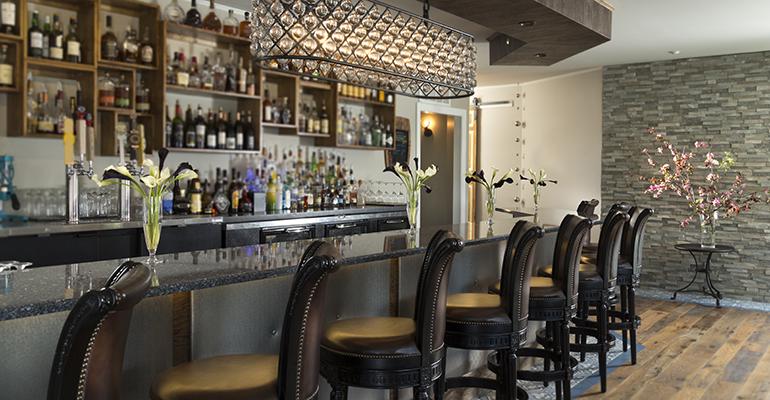This article does not necessarily reflect the opinions of the editors or management of Nation's Restaurant News and Restaurant Hospitality.
2021 is finally here, and none too soon for independent restaurant or hospitality owners and/or operators. But while the worst may be behind us, the best is still yet to come.
While cutting costs and furloughing staff were necessary, neither are sufficient to get the new year off to a good, let alone great, start. Success can only come from what smart owners and operators have been doing for decades — creativity.
The only way independent operators can compete with much larger, deeper pocketed chains and counter the trend of consumer cocooning is by creating a compelling message (get their attention), a delightful experience (that they will want to share and repeat) and a persuasive value proposition (becoming the destination of choice). And that requires doing what the larger chains can’t, won’t and shouldn’t do.
 Here are six ways independent operators can boost their competitive edge:
Here are six ways independent operators can boost their competitive edge:
Go all out for a local purpose.
Every independent restaurant is within driving distance of a hospital, walking distance of a first responder, or a radio signal away from a public service organization. If you are a national or regional chain, you can’t afford to tap into local causes or purposes. But if you’re a local independent, the cost of using some of your idle capacity to feed first responders, house hospitality workers, sponsor school programs, etc., is a fraction of the goodwill you can create.
Require workers to be vaccinated where possible. And maybe even guests.
People are now being vaccinated, but there is still a lot of sickness and fear in our communities. Independent operators can (laws permitting) require all employees to be vaccinated, and even require all guests to show proof of vaccination.
Many people would object to this policy, and some regulars would refuse to return. That’s why larger chains simply can’t afford to do something like this.
However, an independent restaurant that did would find that most people understood and appreciated their concern, for their employees and their guests. And an accommodation featuring low cost or free delivery for those who are offended would likely be lightly used but long remembered.
Because few restaurants would take such bold action, those who did simply wouldn’t be able to handle all the requests for reservations, particularly given the requirements for social distancing.
Consider subscriptions.
Subscription pricing has proven effective in more than a few businesses, ranging from high tech to, yes, foodservice venues.
Every restaurateur knows that a meaningful segment of the guest market simply loves a deal, and subscription pricing benefits from the profitability of slippage, because every purchaser misses an occasional visit.
The number of variations is limited only by our creativity and if one or a few operators chose to pursue one of these courses of action, there would be more than enough guests anxious to participate.
Tap the power of local celebrity.
Many locally famous politicians, athletes, teachers, etc., who have extraordinarily loyal social media followings, have a favorite restaurant that they would love to see stay open through and after the pandemic.
Because they are not national celebrities, they usually do not have the same barriers to contact and are far more approachable, and many would love to renew their fame by helping out a local restaurant of their liking.
Consider the Zoom Happy Hour.
Happy hour can be one of the most profitable times of day for a restaurant that can offer indoor seating, particularly since many people who come to drink inexpensive beverages often stay for more expensive meals. During the shutdown, many of these patrons miss not only their favorite bartenders, but also the bar crowd they got to know over the years.
Using Zoom can unite many of these bar friends and promote food delivery during or after the call.
Create new occasions.
The restaurant and hospitality industry is well known for having created dayparts and visitation occasions. We all know how variable the business is by time of year, day of week and day part.
What better way to create a habit for in-store dining, as well as takeout and delivery, than Meatless Mondays, Taco Tuesdays, Wednesday Wings, Third (of the month) Thursdays, etc.
And just think of the operational efficiency of knowing that one-third to half of your business on a certain day of the week will be meatless, tacos or wings.
The message here is simple: Cutting costs during a period of regulatory restrictions and economic weakness are absolutely necessary but not sufficient to get the new year off to a good start.
The solution is creativity. Fortunately, the restaurant and hospitality industry is known for its creativity, so there’s no better time than the present to exercise these muscles.
Have a great 2021.
The New England Consulting Group is a performance-based marketing management consultancy focused single-mindedly on increasing customer acquisition, retention and expansion across all touchpoints with guests, crews, operators and franchisees.





